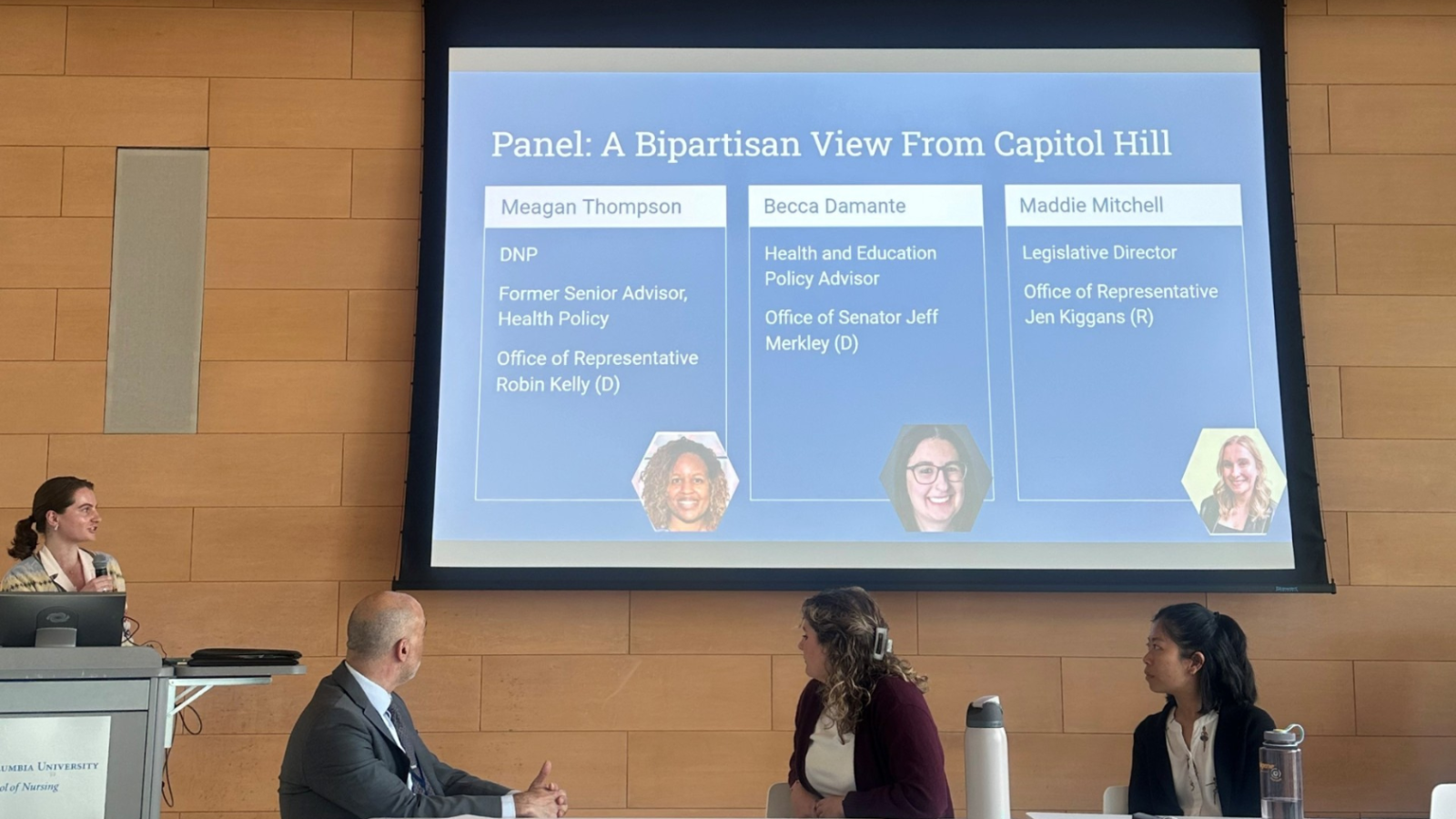
‘Day on The Hill’ Sparks Students’ Excitement
Three Columbia Nursing students brought back enthusiastic reports from the American Association of Colleges of Nursing (AACN) Student Policy Summit in a panel discussion sponsored by the Center for Health Policy on May 6, 2024.
Held annually in Washington, DC, the AACN’s two-day conference offers baccalaureate and graduate nursing students at member institutions the opportunity to learn about the federal policy process and the role of nursing in professional advocacy, and to try their hand at lobbying.
The panelists, PhD student Susan Maloney, BS, a registered nurse (RN); Madeleine Chen, MS, an RN and Doctor of Nursing Practice (DNP) student in the Family Nurse Practitioner (FNP) Program; and Masters Direct Entry (MDE) Program student Taylor Onstott, MPH, attended this year’s summit on March 24-25.
All said they found the AACN event enriching and inspiring and wanted to get the word out about this opportunity to their fellow students.
Stephen Ferrara, DNP, associate professor of nursing and associate dean of clinical affairs at Columbia Nursing and president of the American Academy of Nurse Practitioners, traveled to the Capitol with the students, and moderated the panel. He has long been an advocate for NPs and nursing locally and at the state and federal level.
On the first day of the AACN event, they reported, the students attended two panels, “Nurses on the Hill” and “A Bipartisan View From Capitol Hill,” featuring health policy experts (many also nurses), congressional staff from both sides of the aisle, a Missouri congressman, and Rear Admiral Jennifer Moon, DNP, chief nursing officer of the U.S. Public Health Service Commissioned Corps. They also met with Courtney Ferrell Aklin, PhD, the deputy director of the National Institute of Nursing Research (NINR) at the National Institutes of Health, and Melinda Kidder, MS, an RN and chief nursing officer in the Office of the National Coordinator for Health Information Technology at NINR.
After this learning immersion, the students spent their “Day on the Hill” lobbying lawmakers to support the AACN’s requests for fiscal year 2025:
- At least $530 million in Title XIII nursing workforce development programs and at least $210 million for the NINR
- Passage of the Future Advancement of Academic Nursing (FAAN) Act, providing $1 billion investment in U.S. nursing schools.
- Higher education policy that is sustainable, inclusive, and innovative, achievable by investing in nursing education pathways and academic progression and sustaining and preserving federal student loan programs
One key message from the panelists: things do get done in Congress, but not without bipartisan support. “Supporting issues of nursing is popular,” Maloney noted. “Democratics and Republicans talk to each other and there are common goals when it comes to health and nursing.”
The panelists also learned that the people they would meet with as lobbyists—oftentimes-young-looking aides focused on nursing- and health-related issues, rather than the senator or congressperson—are actually their best point of contact. “These are the people who have the ear of the people we want to reach,” Onstott said.
Lobbying in support of nursing education requires conveying a simple but powerful message, according to Chen: “When you’re investing in nursing education, you’re also investing in your own health and the health of everyone else.”


